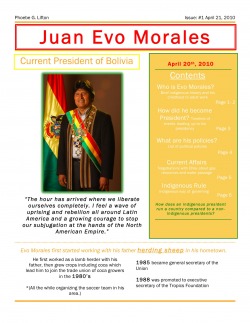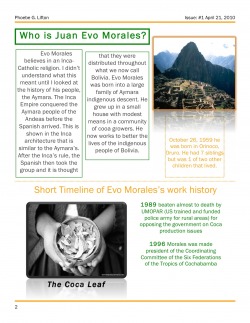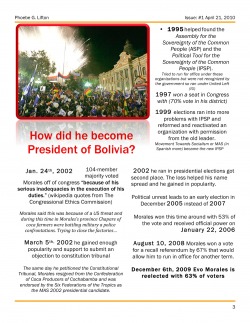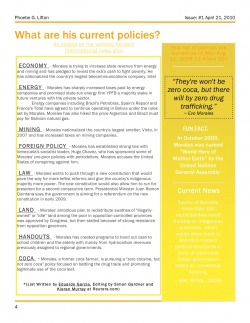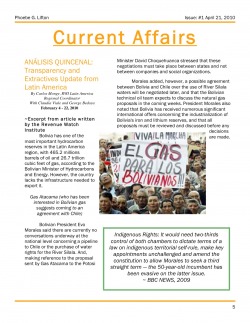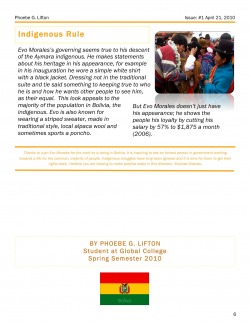"All that we know is still infinitely less than all that still remains unknown."
~William Harvey
~William Harvey
Michael Jackson was on my bus
The King of Pop’s death was not only a tragedy shared by the Jackson family and the music industry but by his devoted fans across the world. For weeks Michael Jackson’s coffin dominated the news and the attention he was getting generated a career comeback for the singing and dancing star. And he did come back; he came all the way to Costa Rica.
My first time taking the bus alone in Costa Rica I was nervous and felt out of place, I wasn’t used to the disorganized city and lack of consideration for personal space on the buses. But on this particular bus ride I soon realized I was not alone at all, Michael Jackson was riding the bus with me. From the speaker towards the front of the bus came the sound of the sung words, ‘thriller baby’. Although I am not a fan of Michael Jackson I took comfort in hearing this too familiar American song. I only know ‘Thriller’ from growing up in the States my whole life; it’s impossible to escape pop culture. This experience is a direct link to globalization.
Music is probably one of the most commonly shared cultural aspects throughout the world. This general definition of globalization helps to explain what I mean when I link Michael Jackson to globalization. “By globalization we simply mean the process of increasing interconnectedness between societies such that events in one part of the world more and more have effects on people and societies far away (Global Perspectives pg. 18). The news of Michael Jackson’s death did reach Costa Rica, but something else also happened. An aspect of Western culture influenced another culture.
Michael Jackson is not just another pop figure; he has a place in US history that Costa Ricans may not understand. Most obviously, some people on this bus will have no idea what this song is about because it’s in English. Michael Jackson’s music was political; he addressed subjects that were relevant to American Westerners. Others don’t know the detailed history of Michael Jackson’s life like the American citizens and I have experienced it. They won’t have been a part of the scandals of pedophilia and racial change complexities that Michael Jackson fed to the hungry media of the states or his records in musical history.
In a broader view, the music industry is a part of globalization, which helped bring Michael Jackson to Costa Rica. The expansion of music can be looked at as a business matter. To increase profit, music looked to broaden its audience. This was achieved in different ways like, for example the Internet and national tours.
Technology is involved in the transportation of music; people share music like they share hand sweat. Over the Internet music can travel easily from computer to computer no matter the distance. Since music is in a way a product of its environment, then there is an exchange of culture that happens. This exchange is similar to that which happens in a handshake. Technology is the driving force behind the expansion of music.
The media also helps to spread information globally. Through the news, Internet, newspaper and TV there is a constant updated stream of information relayed to people in all different places. So when Michael Jackson died, that information was spread globally. For the cultures that thought the news was important they paid specific attention and focused the media towards the topic. This greatly contributed to Michael Jackson’s popularity surge, like what I experienced in Costa Rica.
This not only shows the influence of American pop music on Costa Rica but potentially, and most probably on the world. Since Michael Jackson is a big part of US mainstream culture there is a mixing that goes on. I don’t know the real influence Michael Jackson has on the people riding the bus with me that day but I know that there was an effect. They have accepted him into their culture and I think that is just another step that globalization has taken.
Phoebe G. Lifton
Environmental Issue
2/24/10
Can Americans Take the Heat?
The National Geographic photographs some of the most beautiful places in the world; soon their photos will be dry. They report that “based on the work of some 2,500 scientists in more than 130 countries, …humans have caused all or most of the current planetary warming.” Global warming is slowly changing the temperature of the earth and humans are to blame. As the earth gets warmer, people get heated discussing ways to combat this problem. One topic challenges the largest green house gas emission contributor, cars, and their most frequent users, Americans. To begin action on resolving this problem a solution could be to eliminate car usage in the United States. This could be part of the solution, but this change will only happen when everyone stops working on their tan and commits to action.
In a New York Times forum online, called ‘Room for Debate’ experts discuss the prospect of going car-free. The majority of people who have debate the issue show resistance to the idea, some experts agree that changes in the organization of towns and cities would have to be drastic. Witold Rybczynski, a professor of urbanism writes that, “there are only six American downtown districts that are dense enough to support mass transit, which you need to have… New York City (Midtown and Downtown), Chicago, Philadelphia, Boston and San Francisco.”
But Americans don’t seem like they are willing to make any changes to their comfortable lifestyle even in these places where it is achievable. It’s hard for them to imagine not having a car because driving so much a part of culture and everyday life. One heated commenter on the discussion of the topic posted on the ‘Room for Debate’ forum that eliminating cars in the US goes against his rights as an American. He whines, “We have 50 instead of 13 States for a reason… Americans value individual freedoms, and you don’t get the best of life, liberty, or happiness sleeping 50 people to an acre.” He and others don’t want to give up their big houses and private property for the sake of something as small a problem as global warming, not acknowledging the severity of the issue.
Others argue that the more practical option is only going car-less, not to eliminate cars all together but reduce the amount of use. This would help people to become less dependent on cars for everyday use and only drive when needed. Marc Schlossberg a professor of public policy says, “With some small design guideline changes, these urban centers can form the basis for the suburban transformation that is needed to reduce — but probably not eliminate — the use of cars as the only available and rational transportation mode in the suburbs.” This reduces the use of cars to only some places. Marc says that the best way forward is to “regulate them [cars] to the tasks they do well”. For example important social security systems that rely on speed to ensure safety like ambulances, police and fire trucks.
The people who hesitate to make the change to completely car-free suggest car-less would be an easier option. But regardless of what is easiest one must look at what’s necessary, as The National Geographic website points out that, “Average temperatures have climbed 1.4 degrees Fahrenheit (0.8 degree Celsius) around the world since 1880, much of this in recent decades, according to NASA's Goddard Institute for Space Studies.” Climate change and the effects of global warming aren’t directly inhibiting Americans to continue living their luxury lives so they don’t sweat over the problem.
It’s too late for the US to only go car-less, the kindling has been lit and the fire has started, global warming is changing the earths natural balance faster then people are making changes to help stop the problem. The National Geographic websites has fast facts on global warming and they agree. They say that the gases being put into the air by humans are so detrimental that they “persist in the atmosphere for years, meaning that even if such emissions were eliminated today, it would not immediately stop global warming.” If drivers continue using cars the way they are then the problem may not be fixable in the future.
There is a small portion of the world and a collective of individuals who have made a commitment to car-free. Examples of communities that already exist and are functioning well are: Venice, Fes-al-Bali in Morocco and most recently Vauban Germany. These places are densely populated with an infrastructure that encourages walking and biking to all necessary places. A car-free America is possible with support and imagination, just as the invention of the car has progressed so can alternative technologies for more sustainable living when the demand arises.
The car has debilitated the American people, decreasing physical activity in their daily lives, and cars can also be linked to the large amount of obesity in the United States. Steve a random commenter on the ‘Room for Debate’ forum posts a link to a chart he posted on another blog called Sixfootsixinch by Colleen Smith, a professional volleyball player dedicated to living a greener life. The chartcalculates the percentage of obese people from different countries in comparison to how much they walk or bike. Out of the USA, UK, Norway, Spain, Netherlands and Switzerland it shows America as the highest in obesity and the lowest in biking and walking. Steve says that lowering obesity by going car-free would not only have health benefits for people but also cut health care costs. Maybe Americans can sweat their way to a cooler climate for a healthier population and planet.
Car-free is not only the healthier option but also the cheaper one. Christopher B. Leinberg, a real estate developer, talks about the financial aspects of not having a car. So much money is spent on maintaining this machine he calculates that, “American families who are car-dependent spend 25 percent of their household income on their fleet of cars, compared with just 9 percent for transportation for those who live in walkable urban places.” The money a person saves by not owning a car could be used to improve other areas of life. It could be spent on bettering basic living conditions such as education.
Energy is also saved when not using a car. People living closer together in communities save heating and cooling energy for a building that houses many. J.H. Crawford, author of “Carfree Cities”, talks about these energy saving advantages. He also says that by living close together we leave nature more untouched and able to grow. Nature is the only source of oxygen it supports life. How can that be traded for a Mercedes-Benz SUV or a gas guzzling Hummer? The car-free option saves American citizens money, makes them healthier people and helps the planet.
Will the American people move out of their houses and cozy up together to save the planet from becoming a year round sauna? Or will they take the heat of global warming and not make any changes until it’s too late? My hot opinion is that change does need to happen. Going car-free would have infinitely more benefits for the environment and for the people and animals that rely on this planet for life. The sacrifice is small when the long-term consequences are extinction. Starting out car-less and working towards car-free is a compromise for the future of the United States. It requires an agreement and commitment from American citizens and the government to fund the changes that are needed to make this possible.
Environmental Issue
2/24/10
Can Americans Take the Heat?
The National Geographic photographs some of the most beautiful places in the world; soon their photos will be dry. They report that “based on the work of some 2,500 scientists in more than 130 countries, …humans have caused all or most of the current planetary warming.” Global warming is slowly changing the temperature of the earth and humans are to blame. As the earth gets warmer, people get heated discussing ways to combat this problem. One topic challenges the largest green house gas emission contributor, cars, and their most frequent users, Americans. To begin action on resolving this problem a solution could be to eliminate car usage in the United States. This could be part of the solution, but this change will only happen when everyone stops working on their tan and commits to action.
In a New York Times forum online, called ‘Room for Debate’ experts discuss the prospect of going car-free. The majority of people who have debate the issue show resistance to the idea, some experts agree that changes in the organization of towns and cities would have to be drastic. Witold Rybczynski, a professor of urbanism writes that, “there are only six American downtown districts that are dense enough to support mass transit, which you need to have… New York City (Midtown and Downtown), Chicago, Philadelphia, Boston and San Francisco.”
But Americans don’t seem like they are willing to make any changes to their comfortable lifestyle even in these places where it is achievable. It’s hard for them to imagine not having a car because driving so much a part of culture and everyday life. One heated commenter on the discussion of the topic posted on the ‘Room for Debate’ forum that eliminating cars in the US goes against his rights as an American. He whines, “We have 50 instead of 13 States for a reason… Americans value individual freedoms, and you don’t get the best of life, liberty, or happiness sleeping 50 people to an acre.” He and others don’t want to give up their big houses and private property for the sake of something as small a problem as global warming, not acknowledging the severity of the issue.
Others argue that the more practical option is only going car-less, not to eliminate cars all together but reduce the amount of use. This would help people to become less dependent on cars for everyday use and only drive when needed. Marc Schlossberg a professor of public policy says, “With some small design guideline changes, these urban centers can form the basis for the suburban transformation that is needed to reduce — but probably not eliminate — the use of cars as the only available and rational transportation mode in the suburbs.” This reduces the use of cars to only some places. Marc says that the best way forward is to “regulate them [cars] to the tasks they do well”. For example important social security systems that rely on speed to ensure safety like ambulances, police and fire trucks.
The people who hesitate to make the change to completely car-free suggest car-less would be an easier option. But regardless of what is easiest one must look at what’s necessary, as The National Geographic website points out that, “Average temperatures have climbed 1.4 degrees Fahrenheit (0.8 degree Celsius) around the world since 1880, much of this in recent decades, according to NASA's Goddard Institute for Space Studies.” Climate change and the effects of global warming aren’t directly inhibiting Americans to continue living their luxury lives so they don’t sweat over the problem.
It’s too late for the US to only go car-less, the kindling has been lit and the fire has started, global warming is changing the earths natural balance faster then people are making changes to help stop the problem. The National Geographic websites has fast facts on global warming and they agree. They say that the gases being put into the air by humans are so detrimental that they “persist in the atmosphere for years, meaning that even if such emissions were eliminated today, it would not immediately stop global warming.” If drivers continue using cars the way they are then the problem may not be fixable in the future.
There is a small portion of the world and a collective of individuals who have made a commitment to car-free. Examples of communities that already exist and are functioning well are: Venice, Fes-al-Bali in Morocco and most recently Vauban Germany. These places are densely populated with an infrastructure that encourages walking and biking to all necessary places. A car-free America is possible with support and imagination, just as the invention of the car has progressed so can alternative technologies for more sustainable living when the demand arises.
The car has debilitated the American people, decreasing physical activity in their daily lives, and cars can also be linked to the large amount of obesity in the United States. Steve a random commenter on the ‘Room for Debate’ forum posts a link to a chart he posted on another blog called Sixfootsixinch by Colleen Smith, a professional volleyball player dedicated to living a greener life. The chartcalculates the percentage of obese people from different countries in comparison to how much they walk or bike. Out of the USA, UK, Norway, Spain, Netherlands and Switzerland it shows America as the highest in obesity and the lowest in biking and walking. Steve says that lowering obesity by going car-free would not only have health benefits for people but also cut health care costs. Maybe Americans can sweat their way to a cooler climate for a healthier population and planet.
Car-free is not only the healthier option but also the cheaper one. Christopher B. Leinberg, a real estate developer, talks about the financial aspects of not having a car. So much money is spent on maintaining this machine he calculates that, “American families who are car-dependent spend 25 percent of their household income on their fleet of cars, compared with just 9 percent for transportation for those who live in walkable urban places.” The money a person saves by not owning a car could be used to improve other areas of life. It could be spent on bettering basic living conditions such as education.
Energy is also saved when not using a car. People living closer together in communities save heating and cooling energy for a building that houses many. J.H. Crawford, author of “Carfree Cities”, talks about these energy saving advantages. He also says that by living close together we leave nature more untouched and able to grow. Nature is the only source of oxygen it supports life. How can that be traded for a Mercedes-Benz SUV or a gas guzzling Hummer? The car-free option saves American citizens money, makes them healthier people and helps the planet.
Will the American people move out of their houses and cozy up together to save the planet from becoming a year round sauna? Or will they take the heat of global warming and not make any changes until it’s too late? My hot opinion is that change does need to happen. Going car-free would have infinitely more benefits for the environment and for the people and animals that rely on this planet for life. The sacrifice is small when the long-term consequences are extinction. Starting out car-less and working towards car-free is a compromise for the future of the United States. It requires an agreement and commitment from American citizens and the government to fund the changes that are needed to make this possible.
